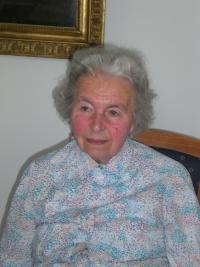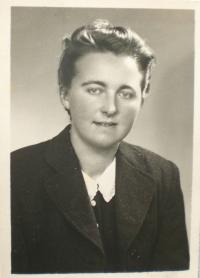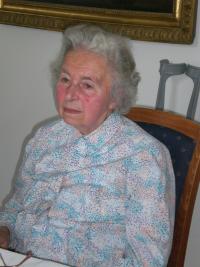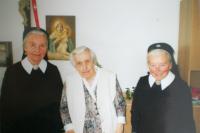So when I pray the Our Father, and I say Thy Kingdom come, then that’s sedition?

Download image
Marie Maixnerová was born in 1922 in Verměřovice (district of Ústí nad Orlicí). In her younger years she worked at Baťa’s shoe factory in Zlín. When growing up she came into contact with the Schoenstatt Movement and decided to join the Sisters of Mary order, leaving for Switzerland. In 1948 she returned from abroad and together with her fellow sisters she started to spread word of the Schoenstatt Movement. She was arrested for the first time in 1953, but was only in custody for three days. She was arrested a second time on the 4th of April 1957, in Prague. She was held at Ruzyně for nine months, before being sentenced to fifteen months of jail, which she spent in the Pardubice prison. After her release she was not able to find work. In the end she got a job making “olomoucké tvarůžky” (a traditional Czech matured cheese) in Letohrady. She worked there until her retirement. After 1989 she joined up with her fellow sisters to build a chapel and provincial house of the Sisters of Mary in Rokol near Nové Město nad Metují.



